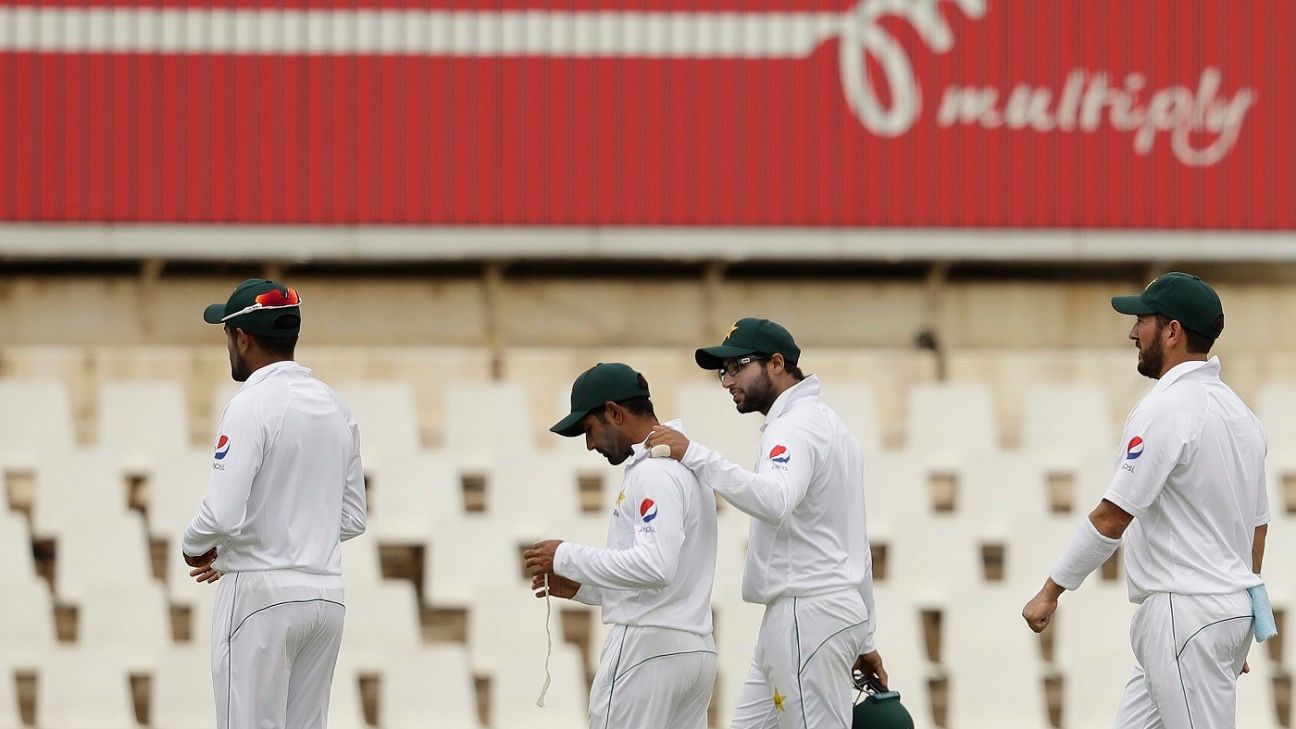Less than three full sessions before the match ended with a commanding South African victory, Pakistan found themselves in relative control. They had a lead of 59 runs and still had nine wickets in hand to influence the result of the Centurion Test. But then Duanne Olivier and Kagiso Rabada went on a wicket-taking spree and that was that. Looking back on the three-day defeat, Sarfraz Ahmed pointed to that period of play with great regret.
“We had an opportunity yesterday after tea. If we played one more hour, we had the opportunity to put runs on the board,” Sarfraz said. “But we didn’t capitalise on that, lost too many wickets and so lost the match.”
It has become a pattern to such an extent, it almost approaches ritual status: the end of a Test match Pakistan could have been on the right side of, undone by the briefest of phases where the fall of one batsman has foreshadowed two, three, or in cases like yesterday, nine. While at times almost appearing at a loss to explain why these capitulations had become such a regular feature, Sarfraz said no one could be completely absolved from responsibility.
“We are struggling in the second innings. We get a good start but whenever one wicket falls, we are not able to take control of the match. This has been happening for over two years, since Hamilton 2016. It has been so long we now need to realise where we’ve made mistakes. It is everyone’s responsibility, including the coaching staff’s.
“We had the opportunity after tea yesterday again, but we failed to capitalise. We lost too many wickets by playing loose shots. We get under pressure too quickly and it becomes mentally challenging in the second and fourth innings.”
More than once, he termed the SuperSport Park surface a “bowling paradise”, but refrained from offering any criticism of a pitch that saw no batsman from either unit look particularly comfortable for an extended period, and the match end well inside three days. Sarfraz, instead, said his side were better served focusing on their bowlers, who, along with a few of the younger batsmen, he termed “positives”.
“I think a couple of positives in this match, the way Babar (Azam) played in the first innings and Imam-ul-Haq and Shan Masood in the second played, they showed great character. Another positive is our bowling. If we have runs on the board, we have the ability to bowl them out for any target.
“I don’t want to say too much about the pitch. If you see it’s two and a half days, it’s not an easy pitch to bat on. Every batsman is struggling. The first 30-40 balls are not easy. If you see in the second innings, even Hashim Amla and Dean Elgar struggled early on. Early on, all batsmen are struggling. It is not an easy Test pitch, batting is very difficult. It is a bowling paradise kind of pitch.”
Another positive for Pakistan will be the renewed availability of Haris Sohail and Mohammad Abbas, both of whom Sarfraz said would be fit for the Newlands Test, which begins on January 3. Asked if his side planned to spend the extra couple of days working on certain aspects of their cricket or resting, a world-weary Sarfraz finally allowed himself a smile.
“I think rest is best.”
